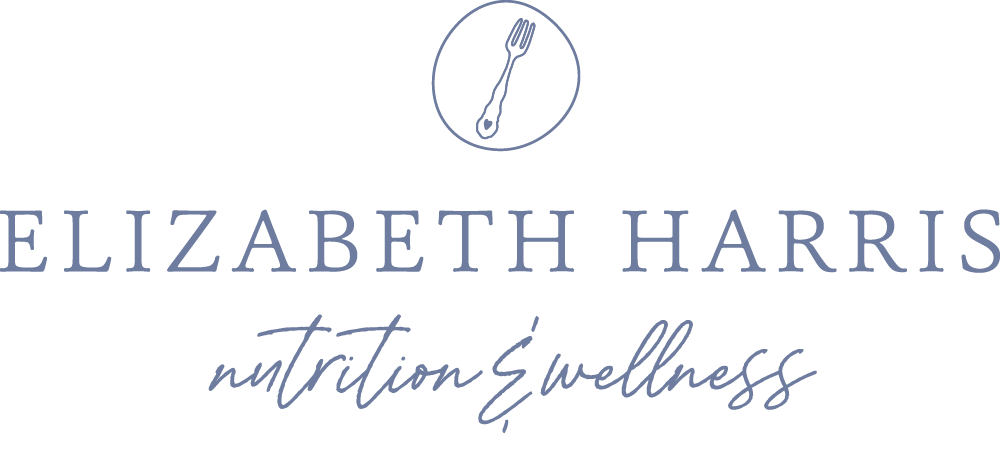Rethinking 4 common "healthy eating" practices
The term “healthy eating” has been around for quite a while, but one thing about diet culture is that it’s constantly shape-shifting. Years ago, the industry just straight up marketed a diet and people enthusiastically opened their wallets. Slowly though, word effectively got out that diets don’t work, and the industry responded in turn by switching up its marketing.
Nowadays, you may hear diets marketed as wellness plans, clean eating programs, lifestyle changes, or more vaguely under the guise of “health.” But in reality, they’re still just a calorically-restricted way of eating with the ultimate goal of weight loss—you know, a diet. 😉
Weight Watchers offers us a recent and clear example of this phenomenon. In 2018, they rebranded as WW with the tagline, Wellness that Works. The kicker? It’s still the same point-driven way of eating intended to produce weight loss.
I can’t tell you how many women I’ve worked with who have done Weight Watchers on and off for decades. Not only did WW fail to deliver them long-term weight loss, but it disrupted their relationship with food to the point that they almost couldn’t see food without tabulating points in their head or feeling guilt or hesitation around eating supposedly higher-point foods—including heart-healthy ones like avocados or nuts.
The truth is that even though diets are so often sold as a means of enhancing health, many common dieting behaviors can actually detract from health and well-being.
To fully explain what I mean, let me show you the downsides of four very common ‘healthy eating’ practices promoted by a great many diets.
The Truth Behind "Healthy Eating” Practices Touted by Diet Programs
1. Eliminating entire food groups
Too many diets tell you to cut out all manner of foods, many of them nutritious options like fruit, carbs, dairy, starchy vegetables, and others. However, eating a wide variety of foods is key to meeting your recommended daily allowance of key nutrients. Dietary variety may not make for sexy marketing, but it's a sound nutrition principle that can be undercut when dieting advice leads us to cut out ever-growing lists of foods.
Also, this type of restriction often triggers rebound overeating and uncontrollable cravings that can disrupt healthful eating patterns and self-trust with food.
2. Daily weigh-ins
Daily weigh-ins keep many people overly fixated on the scale, leading to negative body image and all-or-nothing approaches to food and exercise that are cleary only helpful some of the time at best. Not only that, but the scale has a funny way of distracting focus from more meaningful aspects of health—including specific lab markers, nutritional quality, physical strength, cardiovascular fitness, flexibility, mental and emotional wellbeing, sleep quantity and quality, stress levels, social connections, how people talk to themselves, and so many others.
3. Ignoring hunger cues
Clients have often told me they wore their hunger like a badge of honor while dieting, feeling accomplished if they could ignore their rumbling belly and delay eating because it felt as though that meant they were losing weight. In reality, ignoring hunger makes you tired and cranky. It can also disconnect you from your body’s other eating cues, while setting many people up to obsess about food and eventually overeat. Since we’re far more likely to quickly gobble down less nutrient dense, higher palatability foods when we get overly hungry, this approach usually backfires.
4. Counting calories, tracking macros, and monitoring food
Most diets involve a good deal of counting, tracking, and measuring of one's food choices. Not only is this time consuming and largely unsustainable (after all, who really wants to count calories or points or macros for the rest of their lives?!), but it can:
keep you overly fixated on food and food decisions
lead to disordered eating
cause you to overlook nutritional quality
detract from relationhips and social outings
take away the pleasure in eating
disconnect you from hunger and fullness cues
increase eating stress, guilt, and overwhelm (chronic, unmanaged stress takes a tremendous toll on physical health)
If you’ve read this far and are realizing you’ve done many of these things, please know you aren’t to blame and it's not too late to shift your approach. People don’t fail diets … diets fail people.
There is another, evidence-based way to approach food, health, and wellbeing.
Intuitive Eating Offers a Health-Promoting, Holistic Approach to Food and Health
Intuitive Eating gives you the tools to get off the diet rollercoaster for good. It offers you a path towards healing your relationship with food and your body along with an opportunity to focus on genuine, health-promoting self-care.
PS: I've seen firsthand the harm that diets and a weight-centric approach to health can do and I'm passionate about letting people know that healthy bodies come in a wide range of shapes and sizes. Also, weight isn't a behavior. You can't "do" weight. You CAN engage in lots of activities that are health-promoting independent of the number on the scale. These are exactly what we focus on in my Thrive Tribe coaching programs. It's not only an authentically healthful, sustainable approach but it's empowering too! Contact me today to discuss how working with a Registered Dietitian Nutritionist can help you start your journey toward a healthier, happier relationship with food, movement, and your body.
Want to know if starting an Intuitive Eating approach to food and nutrition could help you with your health goals? Read this blog: How to Know If Intuitive Eating Is Right For You
